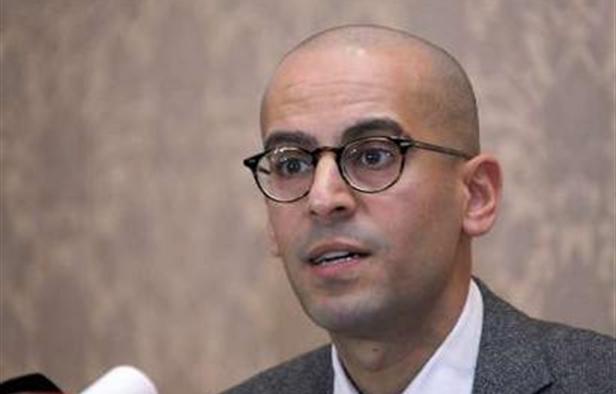One never knows quite how
seriously to take the emissions of Al Akhbar’s editor-in-chief
Ibrahim al-Amin – a caricature of the puritanical, prolier-than-thou
pseudo-leftist; who laments the collapse of the Soviet Union; who says with a straight face that all Lebanese who oppose
Hizbullah’s private arsenal are “working for Israeli military intelligence”;
who could outbid even George Galloway in admiration for the careers of Saddam
Hussein and Bashar al-Assad – but his recent attempts to excuse the publication of
the names, photographs and addresses of 17 alleged witnesses in the upcoming
Special Tribunal for Lebanon trial are not much to chuckle about.
On Sunday, he published the first of two responses to STL spokesman Marten
Youssef’s criticism of Al Akhbar’s conduct at the SKEyes Media
Coverage of International Justice conference over the weekend, in which he
argued that the public had a “right” to know the information, before changing
the subject to the litany of alleged foul play on the part of the prosecution
(or, as Amin calls it, the “international campaign of fabrication targeting the
Resistance”).
In his second piece on Monday, Amin boasted that “We Will Not
Be Silenced”, painting Al Akhbar as heroic whistleblowers,
hounded and demonized once again by the global conspiracy “to damage the
Resistance”.
Of the many points to make against this outrageously misplaced self-pity and
dishonesty, let’s take just the two most obvious:
- A whistleblower is someone who exposes the crimes of the powerful, on behalf
of the powerless and innocent. Al Akhbar, by contrast, put the
powerless and innocent in potentially lethal danger, the only possible
consequence of which is the protection of the guilty and powerful.
- Youssef’s criticism did not come from some morally compromised political
bias, but from basic, fundamental respect for the process of international
justice. As someone who attended all three days of the MCIJ conference, I can
confirm that Youssef’s was not a minority opinion – all legal experts present,
most of whom had extensive experience in international tribunals such as the
ICTY and ICTR, and had no personal connection to or stake in Lebanese politics,
were of the unanimous opinion that anything jeopardising the protection of
witnesses was condemnable and a potential breach of the law.
